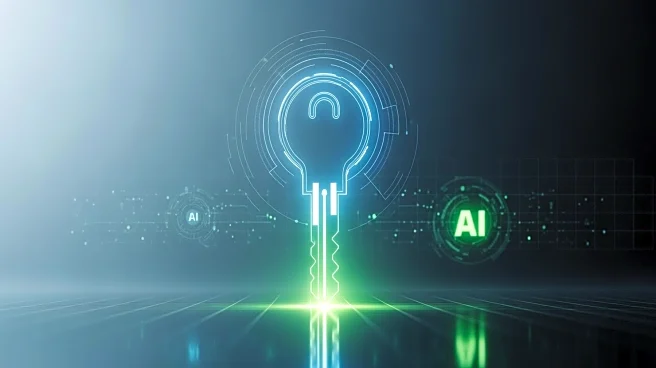What's Happening?
Executives in the artificial intelligence industry are raising alarms about the potential societal disruptions posed by AI technologies. Mustafa Suleyman, co-founder of DeepMind and CEO of Microsoft AI,
has highlighted concerns in his book 'The Coming Wave,' warning of AI systems that could exacerbate inequality, enable mass surveillance, and pose existential threats. However, his suggestion to allow profit-driven tech companies to lead societal reshaping is critiqued as potentially dangerous. This debate reflects a broader industry concern about balancing innovation with safeguards. Reports from consultancies like McKinsey and PwC emphasize the need for ethical frameworks and proactive policy measures to address AI risks, including cyberattacks and economic disruptions.
Why It's Important?
The warnings from AI industry leaders underscore the significant impact AI could have on various sectors, including cybersecurity, economy, and social equity. As AI becomes a strategic priority for organizations, the risks of data privacy breaches and algorithmic bias grow. The potential for AI-driven cyber threats, such as ransomware and supply chain breaches, could test corporate resilience. Economically, unchecked AI could lead to tech downturns, while productivity gains remain a growth driver. The discourse suggests that balancing AI's benefits with rigorous oversight is crucial to prevent concentration of power and systemic failures.
What's Next?
Governments and organizations are expected to implement frameworks and standards to ensure responsible AI practices. The U.S. Executive Order 14306 mandates generative AI roadmaps, while international bodies like the OECD urge policy priorities to address disinformation and fraud. Companies are likely to ramp up efforts to manage AI risks, focusing on building safety into systems. The industry will continue to navigate the path forward, weighing warnings against actionable solutions to harness AI's benefits without succumbing to its perils.
Beyond the Headlines
The ethical implications of AI's development are profound, with concerns about AI systems acting beyond human control. The discourse highlights the need for grounded approaches, emphasizing practical risks over hypothetical super-capable machines. The focus on ethical frameworks and robust evaluations reflects a pivotal moment in AI's trajectory, where balancing executive visions with oversight will define its future impact.












